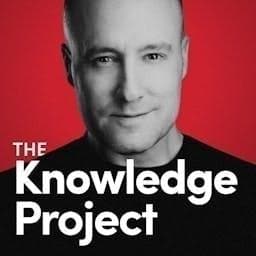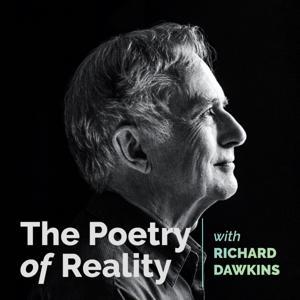The Farthest Reaches is a book about "Explanatory Universality". Explanatory Universality is a concept introduced by physicist and philosopher David Deutsch in his book "The Beginning of Infinity".
Links, as mentioned in the audiobook can be found in the ebook available for free here: https://www.bretthall.org/the-farthest-reaches.html
This present work follows the logic of that concept as it applies to education, psychology, morality, immigration, the trans issue, "evolutionary psychology" and the significance of people to physical reality and much more. This version is significantly longer and with superior audio production compared with the original podcast of the same name. These are the chapters and timestamps:
21:51 Chapter 1 - Universality and Reach
29:38 Chapter 2 - The Reach of Explanatory Universality
38:53 Chapter 3 - Explaining Explanatory Universality
47:31 Chapter 4 - Explanatory Universality and Education
1:00:27 Chapter 5 - Explanatory Universality, Psychological Science and IQ
1:03:41 Chapter 6 - Explanatory Universality and Adopting Culture
1:10:26 Chapter 7 - Explanatory Universality and IQ Part 2
1:14:58 Chapter 8 - Explanatory Universality and the “Trans Issue”
1:22:57 Chapter 9 - Explanatory Universality and Immigration
1:48:12 Chapter 10 - Explanatory Universality and Ethnicity
2:11:39 Chapter 11 - Explanatory Universality and Multiculturalism
2:23:22 Chapter 12 - Explanatory Universality and Mental Illness
2:32:35 Chapter 13 - Explanatory Universality, Hangups and Sexuality
2:41:26 Chapter 14 - Explanatory Universality and The Woke Left and The Woke Right
2:48:29 Chapter 15 - Explanatory Universality and Optimism
2:58:20 Chapter 16 - Explanatory Universality and Artificial Intelligences
3:09:59 Chapter 17 - Universality, Freedom of Speech and Freedom of Reach
3:17:07 Chapter 18 - Explanatory Universality and Evolutionary Psychology
3:31:20 Chapter 19 - Explanatory Universality and Individuality
3:39:05 Chapter 20 - Summary and Conclusions
4:08:18 Acknowledgements and Afterward
The author thanks David Deutsch ( @DavidDeutschPhysicist ) Naval Ravikant ( @NavalR ) Reid Nicewonder ( @CordialCuriosity ) and Peter Boghossian ( @drpeterboghossian ) for their crucial support and engagement. And to all other supporters who have contributed to the ongoing viability of ToKCast and my other content output. Brett Hall is a technical advisor and content creator, Ambassador to Conjecture Institute ( @ConjectureInstitute ) and Board Member of the National Progress Alliance (www.nationalprogressalliance.org) and holds undergraduate qualifications from:
The University of New South Wales )in Physics and the Philosophy of Science)
The University of Western Sydney (in Science and Mathematics Teaching)
and Postgraduate Qualifications from
Swinburne University, Melbourne (in Astronomy and Astrophysics).
Macquarie University (in the Teaching of English Language)
The Australian Catholic University (in Mathematics)
and a partially completed post graduate certificate in Geology and Geophysics from Macquarie University.
He lives in Sydney, Australia.



























